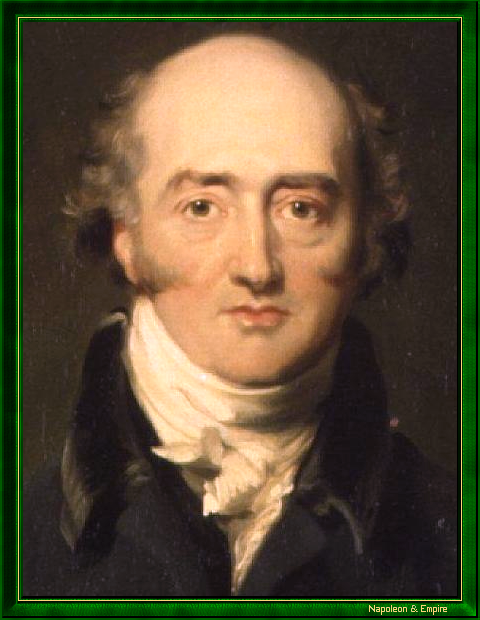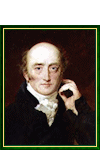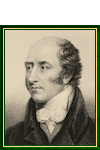George Canning
Pronunciation:

George Canning was born in London on April 11, 1770, to a family originally from Ireland. Fatherless at the age of one, he was raised by his uncle and educated at Eton College and Christ Church, Oxford.
Elected to the Commons at the age of twenty-three, he showed himself to be resolutely hostile to the French Revolution, creating a newspaper which he christened The Anti-Jacobin.
William Pitt the Younger appointed him Under-Secretary of State in 1796, a position Canning held until 1801.
The Addington cabinet's peace negotiations with France then threw him into opposition.
The resumption of hostilities saw him join the governments of William Pitt the Younger (1804 - 1806) and then the Duke of Portland from March 1807 to October 1809. As the latter's Foreign Minister, he supported the Spanish insurgents and had Copenhagen bombarded (September 2 to 5, 1807).
Canning retired in 1809 after a duel with Lord Robert Stewart Castlereagh, his colleague in the government. However, he remained ambassador to Portugal in 1814, and again served as Foreign Minister of the United Kingdom from 1822 to 1827, after Castlereagh's suicide.
On April 10, 1827, he was finally appointed Prime Minister by King George IV, but died of pneumonia at Chiswick House on August 8. He was buried in Westminster Abbey, London.
"George Canning" by Richard Evans (Birmingham or Hereford 1784 - Southampton 1871).

Other portraits

"George Canning" by Sir Thomas Lawrence (Bristol 1769 - London 1830).

"George Canning". Engraving by Freeman.